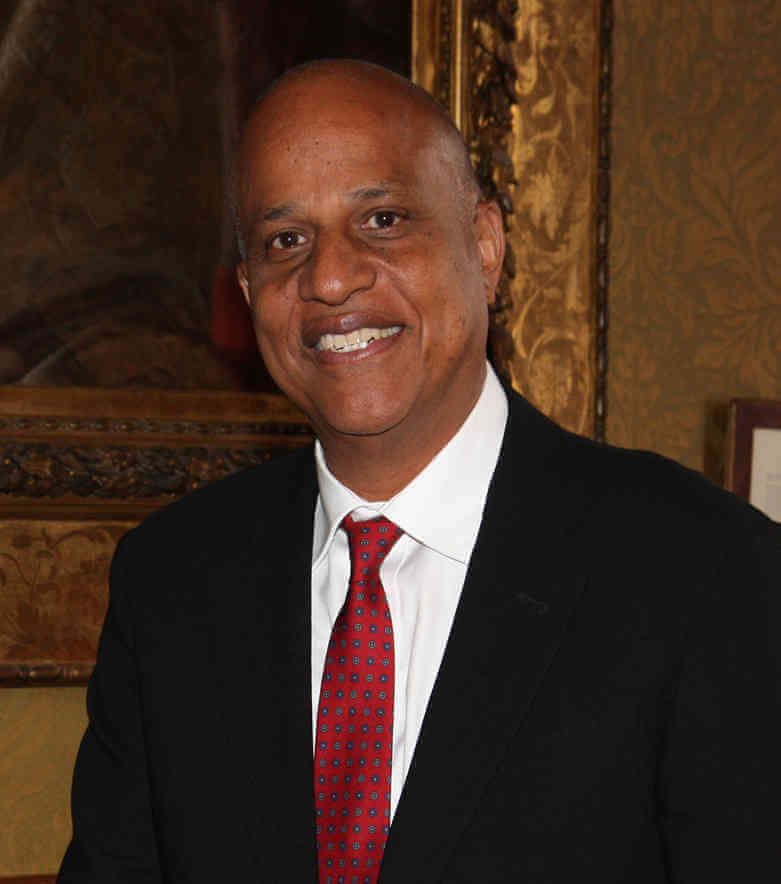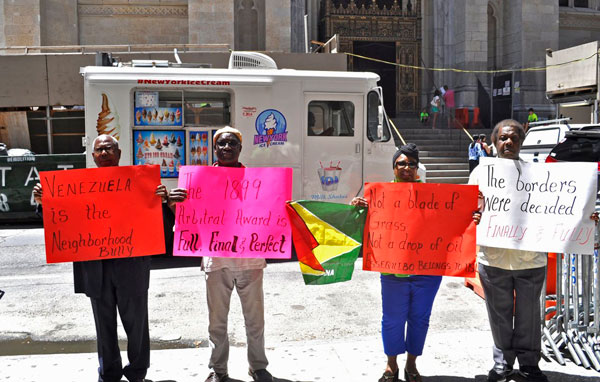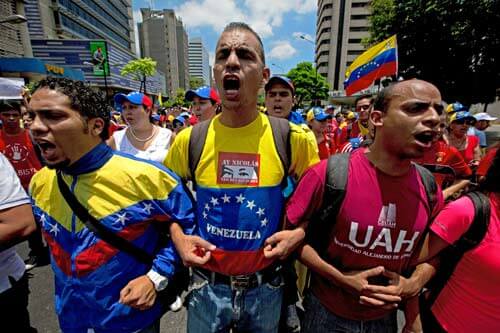In the Caribbean Community family of 15 nations, there are two major simmering border rows dating back centuries to the days of British and Spanish colonialism. One involves Venezuela’s claim to almost two thirds of Guyana and large tracts of its sea space where American supermajor ExxonMobil has found more than six billion barrels of light, sweet, crude oil. The other has to do with Guatemala laying claim to half of the territory of Belize so it could easily gain road access to the Caribbean coast through Belize for its imports and exports.
In the past, Guyana has filed papers with The Netherlands-based International Court of Justice (ICJ) to get rid of what authorities deem as Venezuela’s spurious claim to Guyana’s territory. Officials there think the country has such a strong case that the World Court will eventually dismiss the Venezuelan effort and settle the decades-old dispute once and for all.
In Belize’s situation, locals voted in a referendum in the past week to take the case to the ICJ after years of dithering by successive governments. Just over 54 percent of those who bothered to turn out voted Yes to allow judges on the court to decide Belize’s fate. A whooping 46 percent voted No but figures were higher than the 26 percent of those who voted in Guatemala a year ago to allow the ICJ to settle the dispute.
The actions by Guyana, the largest of the regional member states and Belize, the third after Suriname, will help Caribbean leaders to breathe a sigh of relief as neither country has the military firepower or even the human resources to compete with Venezuela and Guatemala. Governments there have both used the border row to whip up strong nationalist sentiments back home, particularly during times of domestic disturbances. The move to the ICJ, officials say, will help sooth nerves and ease tensions although, in Guyana’s case, Venezuela has refused to be a party to the upcoming proceedings.
In the past, Guatemala had years resisted entreaties from all sides to have the case settled by the World Court but it finally agreed to do as the decades drag on a dispute that dates back to a treaty Britain and Guatemala signed way back in 1859 that was supposed to have defined boundary markers.
Guatemala over the decades also accused Britain of not keeping colonial era promises to build a road link through Belize to give it access to the Caribbean coast and walked away leaving nations after independence with simmering quarrels over border lines. That promise was part of a compromise to settle the dispute but it never fructified and left today’s governments to deal with the situation as best as they could.
After the vote, Belize Prime Minister, Dean Barrow said that authorities will now move with haste to prepare the case and file it with the court as this might well be a once in a lifetime chance to seal it once and for all.
He also said that “Belizeans moved in a united manner and this is the attitude they should keep towards this issue of national interest. I want no slip ups” in the preparation of the case for the ICJ, he told reporters after the vote.
The referendum was initially scheduled for April 10 but had to be postponed because of court challenges related to the process.
Officials say the process could take up to five years.
Western nations, Britain among them, welcomed the approval of the referendum suggesting that Belize could have a brighter future if the weight of Guatemala’s claim and the constant bickering over border lines and access to the Atlantic is sorted out.
The American Embassy, for example, noted in a statement that “by referring the matter to the International Court of Justice, the country has chosen to move forward in the peaceful, final resolution of this dispute. That resolution will be good for the people of Belize, the people of Guatemala, the people of Central America, and ultimately the people of our entire hemisphere. It will open the way to increased trade, travel, and better cooperation on everything from fighting drug-trafficking to social development to preserving the environment.” Britain said it “believes that legal certainty between both countries will boost peace, investment and social development for today’s and future generations to come.”


























